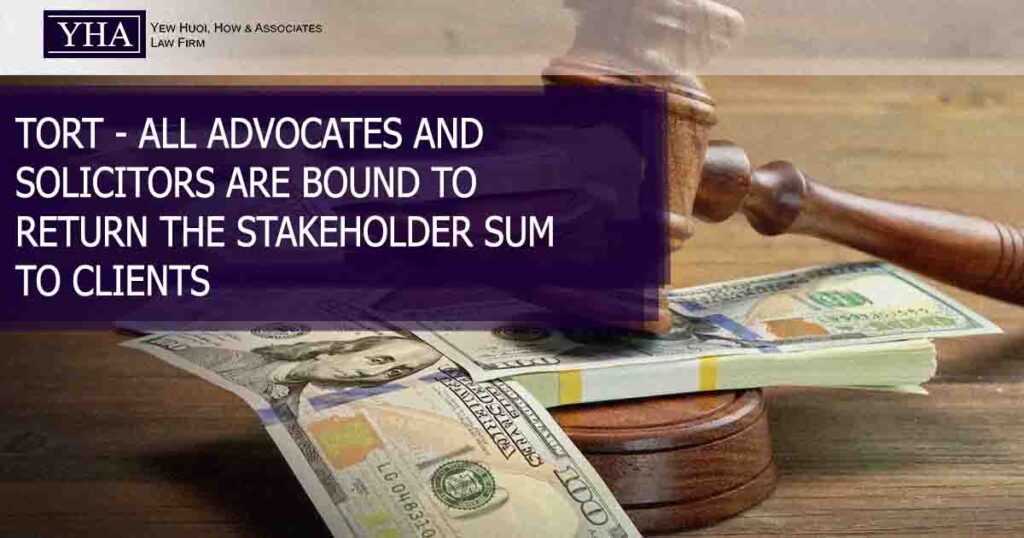B, an advocate and solicitor has failed to make payment of the stakeholder sums to A. A has asked from B for the restitution but B refused to pay him back, for the reason that he was practising as partner but not sole proprietor. In fact, B without any express power under the Legal Profession Act 1976 (“LPA”) issued the Guidelines and restricted the claims only to acts of dishonesty of advocates and solicitors who were sole proprietors. A claims for compensation from the Compensation Fund.
Q: What is the purpose of the Compensation Fund?
A: To mitigate the losses suffered by the member of the public ie the client of an advocate and solicitor. In our case, A, who is a client to B is entitled to claim for the compensation.
Q: What does A need to prove?
A: B’s dishonesty act ie B refused to give back the monies to A.
Q: What is the relevant regulation?
A: S.80 LPA applies to all advocates and solicitors. It clearly allows A to make a claim from the compensation fund for any loss suffered by him from any dishonest act of:
- an advocate and solicitor, or
- his clerk or servant, or
- whether the advocate and solicitor was practising as sole proprietor or in partnership with others, or
- whether the advocate and solicitor had a valid practising certificate at the material time
Q: Can B, without any power conferred by the authorised personnel make his own Guidelines restricting the claims only to acts of dishonesty of advocate and solicitor who is practising as a sole proprietor?
A: B has in fact gone beyond the law as he has no authorisation to issue his Guidelines. As a result, his Guidelines clearly could not go against the provisions in s.80 of the Act, which will uphold him accountable to A’s compensation.

